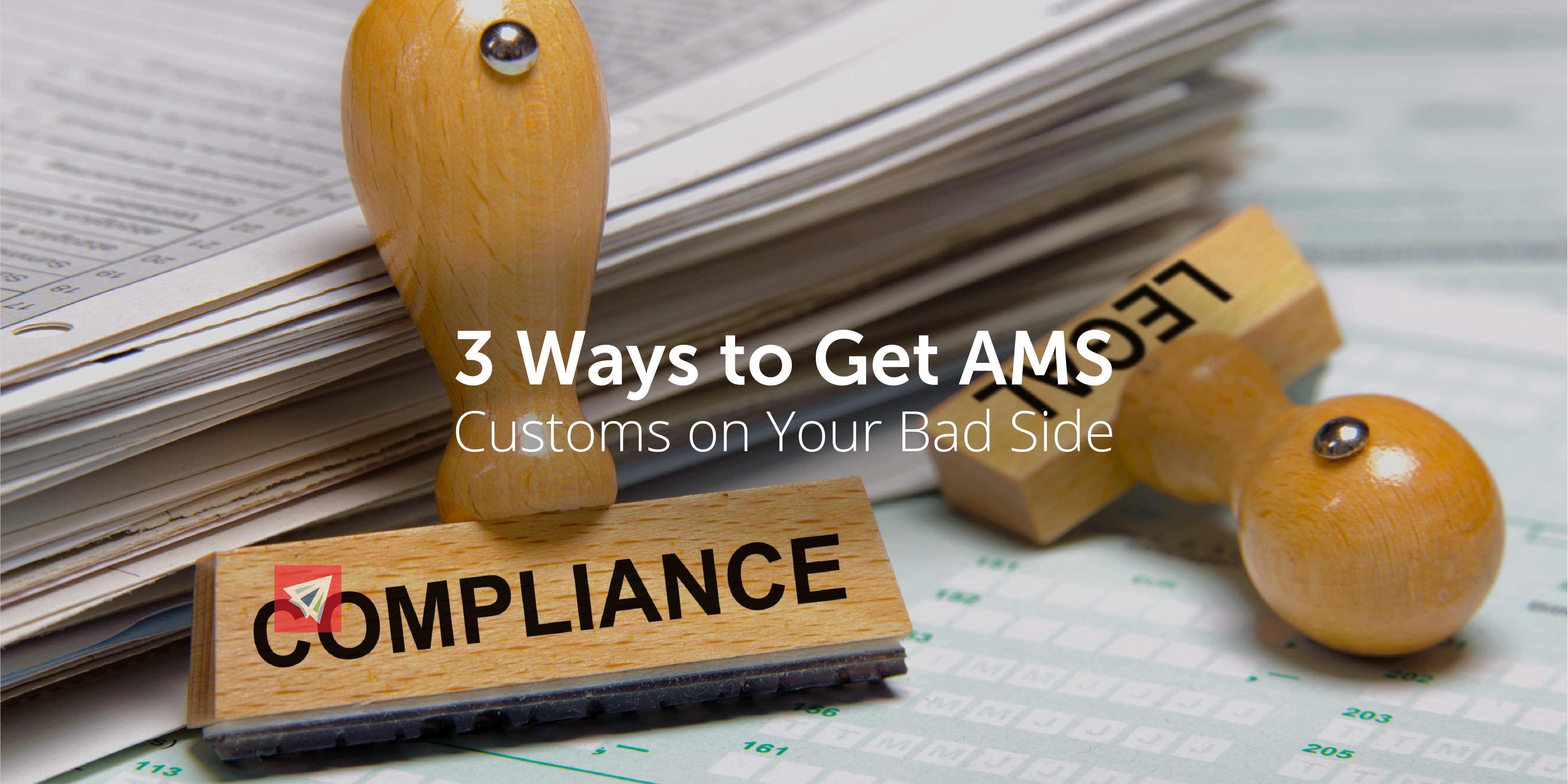It’s no fun to have enemies. Especially in the business field. Unpaid dues, lousy practices, and careless business relationship management can all lead to an unfortunate split in business relationships. In some instances this can affect the bottom line of a company. Although very few business relationship splits are ever celebration-worthy, everyone would agree that getting the government on your bad side is never a good idea. U.S. Customs are the popular government agency amongst those who ship internationally, and many companies unexpectedly land themselves on AMS Custom’s bad side.
How to Get AMS Customs on Your Bad Side
Yes, that title is fairly sardonic – who wants to get AMS Customs on their bad side? What’s worse is that many companies have unknowingly done so. If you’re company frequently imports goods to the U.S., you are dealing with AMS Customs all the time. Through customer stories, company research, and industry knowledge, these are 3 ways to get AMS Customs on your bad side (if you didn’t get the clue, these are things you probably don’t want to do):
1) Untimely AMS Customs Filing
AMS Customs is a stickler about the timing of document filing, and for good reason. Any one steamship can contain upwards of 20,000-30,000 TEU’s (twenty-foot equivalent unit). In order to “clear Customs,” the government needs to know the intimate details of every container aboard that vessel. Since AMS has been endowed with this responsibility, regulations have been made strict.
AMS Customs requires that all electronic document filing must be done within no less than 4 hours of the cargo hitting U.S. soil. In other words, an importer has until the 4 hours leading to the cargo’s arrival to finish revising and publishing their documents electronically before being hit with penalties. Penalties imposed by AMS Customs are steep. For each irregularity case per MAWB/HAWB, carriers will be charged $5,000-$10,000 according to AMS’s rulings.
2) Disposing of CBP Records Before You’re Allowed
You imported goods, filed AMS Customs records in a timely manner, received your goods and went on your merry way. You can throw away all those old CBP records now, right?
According to U.S. Customs, importers, exporters, carriers, and brokers are all required to keep CBP documents and records for a minimum of five years from the date of entry, or five years from the date of the activity that required the maintenance of the records. The only exemption for this ruling is in the case of claims, whereby any record relating to a drawback claim must only be kept until the third anniversary of the date of payment of the claim.
3) Listing an Incorrect House Bill Of Lading Number
This should go without saying, but submitting wrong documentation or House Bill Of Lading numbers is an absolute “no-no” when it comes to AMS Customs filing. When Customs clears any cargo, all details surrounding the shipment need to be accurately accounted for. Misstated numbers, cargo details, and documents is not only unorderly – it is illegal in many cases. Since the U.S. has strict rules regarding substances, materials, and related product HTS codes, companies can be fined heavily for misstating materials or reporting incorrect House Bills Of Lading.
Penalties for Non-Compliance with AMS Customs
As stated before, AMS Customs penalties are steep. Non-compliance with Customs rulings can cost you upwards of $10,000 per instance. As a freight forwarder, we most commonly hear that companies get burned by AMS Customs because of late electronic document filing. Companies that ship frequently throughout the year are most commonly prone to this mistake.
Keep in mind, the more issues you have with U.S. Customs, the more likely your cargo is to be pulled for on-site examination by Customs in the future. As expected, you will have to pay for the added days that your container is held at the port during examination, and these costs can end up at anywhere between $100-$300 per day.
Conclusion
I think we can all agree that upsetting AMS Customs is no wise choice. However, many people do so without it being a conscious decision. Forgetfulness and a lack of attentiveness can get AMS Customs on your bad side really quick, and this can lead to increased future container inspections, heavy fines ($10,000 per instance of violation and $100-$300 per day of demerge charges), and legal issues.
If you are worried you may unknowingly be in violation of AMS Customs requirements, don’t wait to find out the hard way. There are significantly more than “3 ways” to get AMS Customs on your bad side – but hopefully this list gives you a small glimpse into the feasibility of getting into a sticky situation. Evaluating your business’s practices is 1 step away – just give us a call and our experienced team will answer all your questions!

One thought on “3 Ways to Get AMS Customs on Your Bad Side”